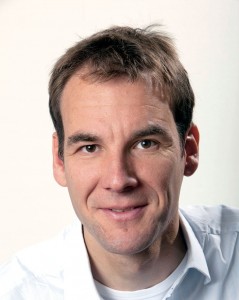I was touched when I recently read the memoires of Paul-Henri Spaak, the Belgium socialist statesman and one of the founding fathers of the European Union. How beautiful to see the passion of the man who in the middle of the fifties headed the group that worked on the Treaty of Rome (1957), the treaty establishing the European Economic Community.
The negotiations between the founding countries were not always easy. Sometimes simple issues like duties on bananas seemed insurmountable obstacles.
‘When I ran out of arguments and patience, I declared that I gave the struggling parties two hours to come to an agreement,’ Spaak writes in his memoires. ‘Otherwise I would invite the press and tell them that it was impossible to build Europe because we could not solve the issue of bananas.’
They made it. When the Treaty was signed on the 25th of March 1957, ‘the clocks of Rome sounded at full strength, to greet the birth of the New Europe,’ Spaak wrote. In his eyes it marked ‘the triumph of the spirit of cooperation and the defeat of egoistic nationalism’.
I work for the Dutch online journalism platform De Correspondent. At De Correspondent we don’t believe in absolutely independent journalism. Of course we strive to be open-minded and not driven by ideology. But we choose to show the parti pris everyone has and that journalists normally feel obliged to hide. I fully confess that I have warm feelings for Spaaks ideals, for the attempt to overcome narrow nationalism and seek common understanding and cooperation on our war-torn continent.
Just like the European Union, De Correspondent is a project of collaboration. We believe the time in which the journalist told “the truth” to the reader and simply sent his message to him, is over. We want to take the readers with us on our journalistic adventure. Under our articles readers have the possibility not to react, but to contribute, and to mention their field of expertise. Often very interesting debates take place on our site. Readers share their ideas with us and give us suggestions for research we have to do and new articles we have to write.
De Correspondent is made possible by our members. We started a year ago after setting a world record in crowd funding for journalism. We proved that it is not true that people do not want to pay for journalism on the internet. Maybe not for news, but our goal is to not to provide news. We want to delve deeper and to write background articles on the reality behind the headlines. On our site we have no advertisements, to avoid flickering banners and give a comfortable reading experience, but also to make sure that advertisers don’t have any influence on what we write.
At the moment about thirty correspondents work for us, each with their own field of expertise. I myself am ‘Correspondent Europe between power and imigination’. As I said, I have strong feelings for the European idea. But that doesn’t make me an uncritical sympathiser of the European Union as it is. On the contrary. My research as a journalist shows that there is a lot wrong with the EU. Lobbies often have too much influence on the making of European laws. Although the European parliament has become more and more powerful, many Europeans do not feel they are represented by it. And the EU wants to be a ‘strong global actor’, but often the member states act on their own in foreign policy.
The memoires that Spaak published in 1969 have the tittle ‘Combats inachevés, Unfinished struggles. The part in which he writes about the EU is titled: ‘de l’espoir au déceptions’, from hope to deception. In the last chapter Spaak writes about the crisis of 1965, when France stayed away from European meetings, protesting against the plans for a common agricultural policy.
Fifty years later we are maybe in an even deeper crisis. How to overcome the economic malaise we’re suffering from for years already? How to regain believe in the Europaean project in times of rising euroscepsis? How to find an answer to the chaos and the violence near our borders and really become a strong global actor?
As ‘correspondent’ I want to find out how Europe tries to find answers to these difficult questions and to renew itself. Not only the European Union, De Correspondent is also an ‘unfinished struggle.’ Indeed, in both cases we have just begun.
About the author:
 Tomas Vanheste is journalist with the innovative online media platform De Correspondent in the Netherlands. more…
Tomas Vanheste is journalist with the innovative online media platform De Correspondent in the Netherlands. more…
